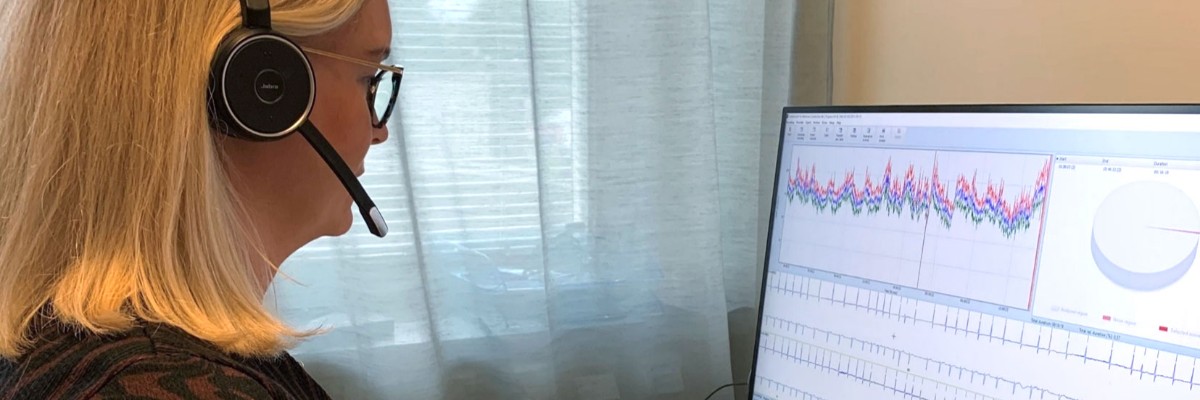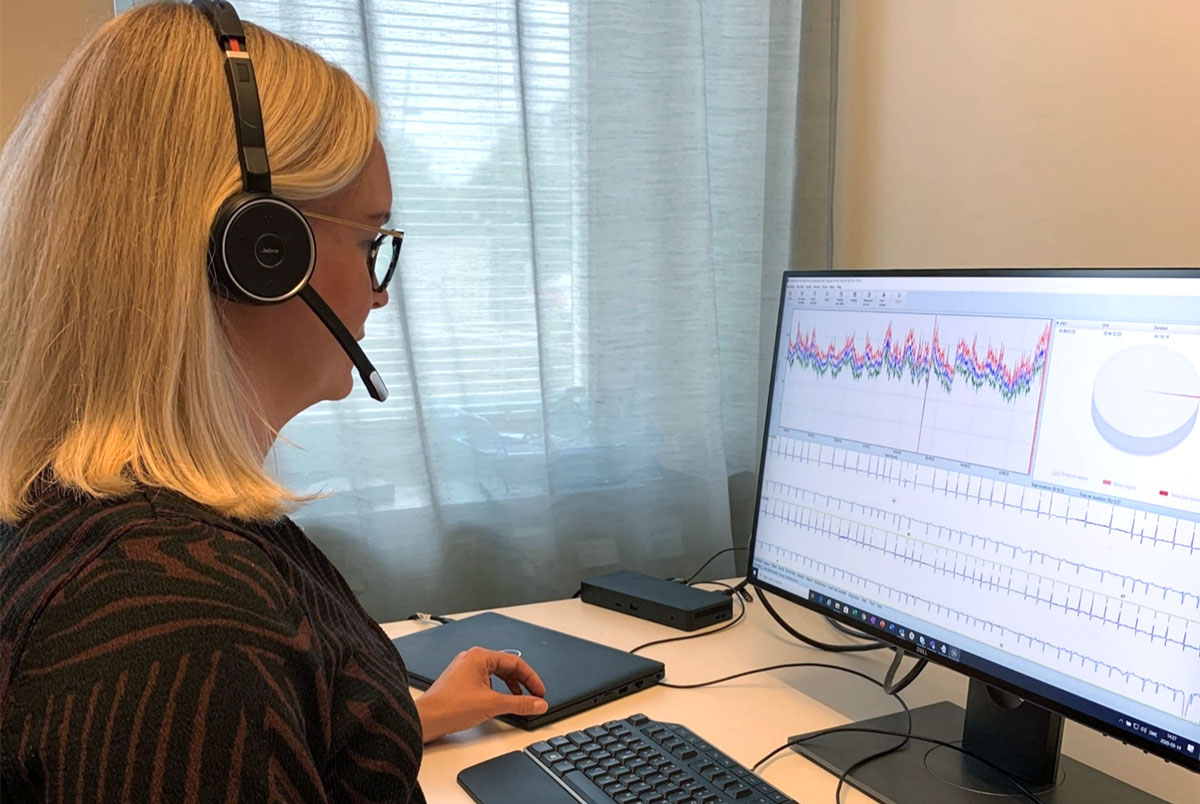Coronavirus swept across Europe in the spring of 2020 and disrupted our lives. The virus took a particular toll on healthcare professionals. Many aspects of their work had to be quickly rethought and carried out in new, innovative ways – not just patient care but many other important elements as well, such as training. At times like this, maintaining and building your professional skills is front and center, but how do you do that when you no longer can attend trainings?
Working at the Center of Excellence on Social Welfare in Päijät-Häme, Finland, nurse Anna Mäkelä and laboratory technician Monika Nordlund-Mäkinen are busy with examinations, follow-ups, stress tests, and other tasks that support in the diagnosis and monitoring of patients. Both are particularly familiar with cardiac patients because they prepare patients for Holter monitoring and analyze Holter recordings on a daily basis.
This year, Mäkelä and Nordlund-Mäkinen’s employer updated their Holter system to GE Healthcare’s CardioDay Holter ECG software. It was Sofia Wreder’s responsiblity to make sure that they would become comfortable with the new software, to be able to use it confidently day in and day out.
Sofia Wreder, Lead Application Specialist, started to arrange virtual CardioDay trainings during COVID-19.
Converting classroom trainings to virtual
As Lead Application Specialist at GE Healthcare, Wreder would typically organize physical trainings for her customers to ensure this. In the spring of 2020, all face-to-face trainings however came to a halt because the pandemic. Sofia Wreder however did not stop – she converted from classroom trainings into virtual.
Anna Mäkelä and Monika Nordlund-Mäkinen were among the participants who received Teams invitations to a series of virtual CardioDay trainings.
“Sofia organized two classroom trainings for us in Lahti, Finland, in January 2020. We had been using the MARS data analysis software, so we were familiar with the basic principles of ECG analysis. After learning the basics of CardioDay, a virtual training was kicked off, so that we could learn more. In the fall of 2020, Sofia organized sessions several times per week, a couple of hours each, to complement the basic training. After each session, we agreed on which topics we would focus on next. This model worked extremely well,” says Anna Mäkelä, nurse.
”In between the training sessions Sofia helped us if we had questions or issues, such as recordings that proved difficult to analyze. She was able to look at the recordings and consult us with what we could try to do with them,” states Monika Nordlund-Mäkinen, laboratory technician.
Mäkelä and Nordlund-Mäkinen both applaud the virtual training, because it was easy to absorb information when it was provided a little bit at a time. Both also enjoyed the possibility of putting their learning into practice immediately after each session.
Moreover, the virtual training offered flexibility: all participants were not able to join every session, but everyone had the time to participate in at least some of them.
The trainings were organized in English, which initially caused some concerns.
”To be honest, the language was not an issue. But you need to be motivated to attend a virtual training! If you are not, it would be very easy to just turn off your mic and work on other things during the training. The more interactive the sessions are, the easier it will be for the participants to stay focused. Asking questions along the way is a good way of creating audience interaction. If the group is large, chat functionality is likely to lower the participants’ fear of asking questions,” Mäkelä points out.
Nordlund-Mäkinen also has some development ideas:
”What I enjoy the most about classroom trainings is meeting colleagues and getting peer support. It would be great to have a similar element in virtual trainings. I would enjoy a joint discussion on the challenges we all face in our daily work.”
Join GECares.com. Here you can connect with other healthcare professionals and access online trainings, clinical webinars and educational content.






